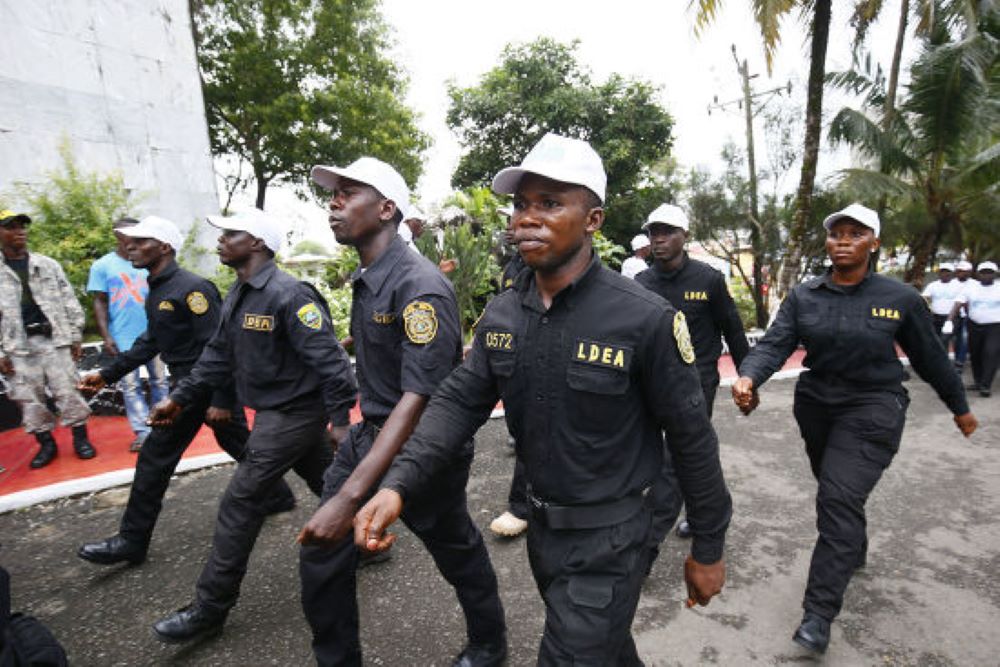Liberia is actively combating the pervasive issue of drug trafficking and abuse through a multi-pronged approach involving training, inter-agency collaboration, and comprehensive prevention and treatment programs. A significant step in this fight was the training of 470 officers from various security agencies, equipping them with the necessary skills to address drug-related crimes. This training encompassed critical areas such as border management, vehicle and maritime search procedures, incident reporting, cybercrime prevention, and financial intelligence. The deployment of these trained officers at strategic border points has already yielded positive results, significantly bolstering the country’s efforts to intercept drug shipments and apprehend individuals involved in drug trafficking.
The impact of this enhanced security presence is evident in the recent successes of the Liberia Drug Enforcement Agency (LDEA). The agency has seized substantial drug consignments, valued at an estimated USD 5.5 million in street value. Furthermore, their efforts have led to the destruction of cannabis farms in Lofa, Nimba, and Grand Gedeh counties, disrupting the local production of illicit substances. The judicial system has also played a crucial role, with 25 individuals convicted and sentenced to prison terms ranging from one to twenty years for drug-related offenses. These combined efforts demonstrate a strong commitment to disrupting the drug trade and holding perpetrators accountable.
The government’s strategy against drug abuse extends beyond law enforcement, encompassing a comprehensive National Drug and Substance Abuse Program guided by a detailed action plan. This plan, developed by the Technical Working Group, outlines specific roles and responsibilities for all involved government agencies, ministries, and key stakeholders, including international partners like UN Women and the UN Peacebuilding Project. The program adopts a holistic approach, addressing both the supply and demand sides of the drug problem.
Supply reduction efforts primarily target drug dealers, traffickers, and importers, aiming to block the entry points of illicit substances into the country and curtail local drug production. The LDEA, with support from the UN, plays a leading role in implementing these measures, working to strengthen border security and dismantle drug trafficking networks. Demand reduction initiatives, on the other hand, focus on preventing substance abuse, particularly among young people, and providing effective treatment and recovery services for those struggling with addiction. These initiatives emphasize education and awareness campaigns to discourage drug use and offer support systems for individuals seeking rehabilitation.
Liberia’s commitment to addressing drug abuse is further underscored by recent amendments to its drug laws, which aim to increase penalties for drug-related crimes while also prioritizing treatment over incarceration for drug users. The wide dissemination of these amended laws to law enforcement agencies ensures consistent application and promotes awareness of the revised penalties. Recognizing that many drug users are themselves victims, the legal framework emphasizes a rehabilitative approach, directing individuals arrested for drug use towards treatment programs rather than automatically imposing prison sentences.
The Ministry of Justice is actively developing a legal framework known as “punitive to incarceration,” which further strengthens the emphasis on treatment over punishment for drug offenders. This framework will streamline the process of channeling individuals arrested for drug use into appropriate treatment programs, offering them a path towards recovery rather than simply incarcerating them. This approach aligns with the Ministry of Health’s Comprehensive Prevention Intervention, which employs a three-tiered prevention model. Primary prevention targets young people who have never used drugs, educating them about the dangers and consequences of substance abuse. Secondary prevention focuses on individuals who may be experimenting with drugs or using them minimally, providing early intervention to prevent escalation. Tertiary prevention addresses individuals already heavily involved in drug use, offering rehabilitation and support services to facilitate their recovery. This comprehensive, multifaceted approach demonstrates Liberia’s ongoing commitment to tackling the complex challenge of drug abuse.














